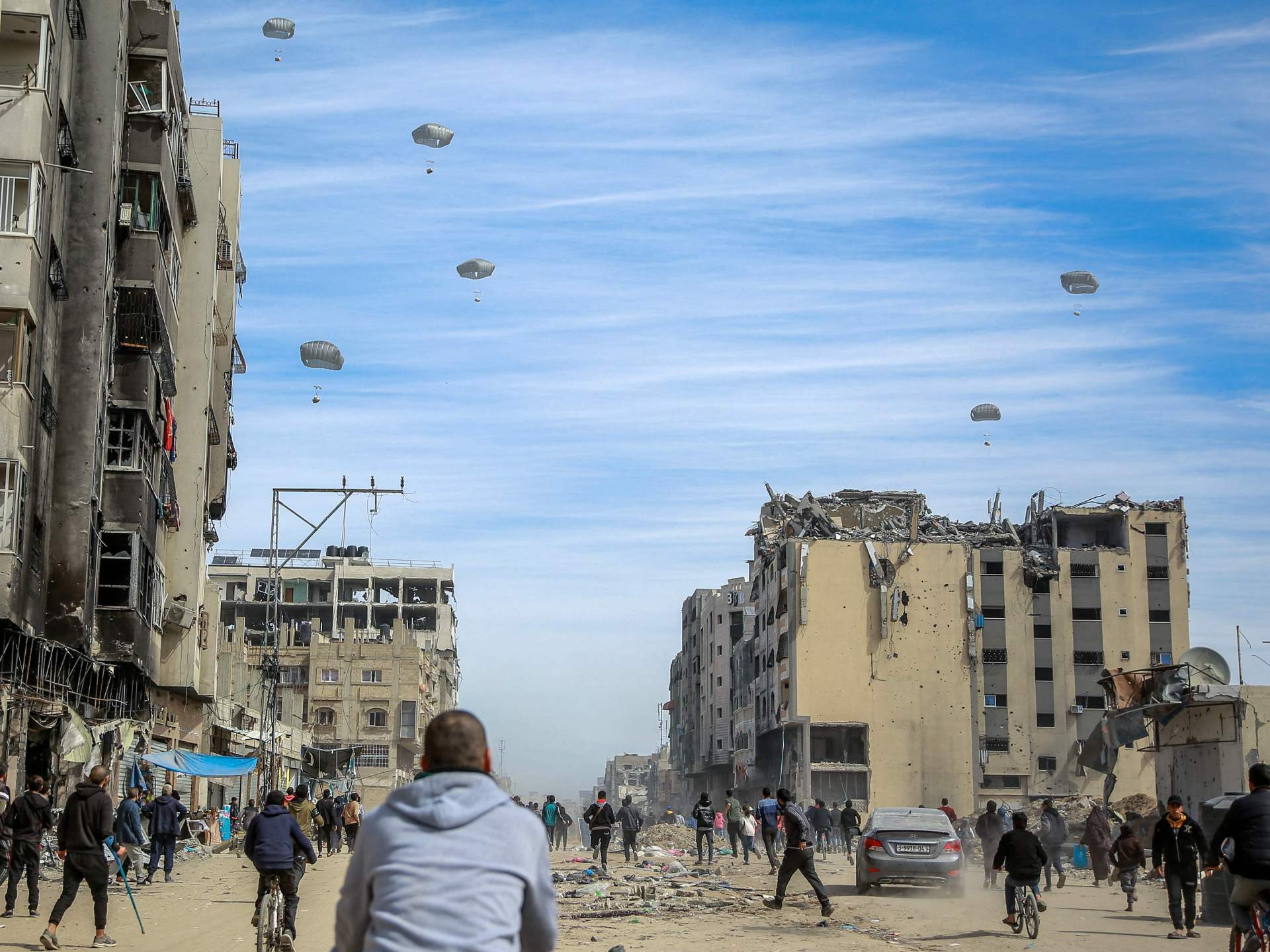Palestinians trying to obtain aid dropped by planes from the air on the besieged Gaza Strip (French)
The United Nations Humanitarian Coordinator in Gaza, Sigrid Kaag, announced that sending humanitarian aid to the Strip by dropping it from the air or delivering it by sea cannot in any way constitute an “alternative” to delivering it by land.
Kaag told reporters at the end of a closed session of the UN Security Council in New York, “I spoke about the importance of diversifying land supply routes. This solution remains the best, because it is easier, faster, and cheaper, especially since we know that we need to continue delivering humanitarian aid to the people of Gaza for a long period of time.” .
Commenting on the humanitarian aid that was recently dropped from the air over the Palestinian Strip, Kaag said, “I believe that these operations are a symbol of support for civilians in Gaza. They are a testimony to our common humanity, but they are just a drop in the ocean, and they are not enough at all.”
The former Dutch minister, who was appointed by the UN Security Council last December to the position of “Chief Coordinator for Humanitarian Affairs and Reconstruction in Gaza,” stressed that “air and sea cannot be a substitute for what we need to deliver by land.”
But Kaag pointed out that “any additional aid, at this critical juncture, will be very important.”
The UN official also welcomed the decision taken by US President Joe Biden regarding the establishment of a temporary port in Gaza to deliver aid to the Strip by sea, noting that other “major countries” will join this “sea corridor” that will start from Cyprus.
For his part, Stephane Dujarric, spokesman for the Secretary-General of the United Nations, explained that trucks arriving at the Egyptian Rafah crossing are inspected, unloaded, and then reloaded when they enter the Gaza Strip in trucks that are often smaller in size and insufficient in number.
Relief organizations confirm that aid entering the Gaza Strip remains very scarce.
Aid convoys entering by land are subject to prior approval from Israel.
After 5 months of war and a severe siege on the Gaza Strip, the vast majority of the Strip’s population of 2.4 million people are vulnerable to famine, according to the United Nations.
Source: Agencies

